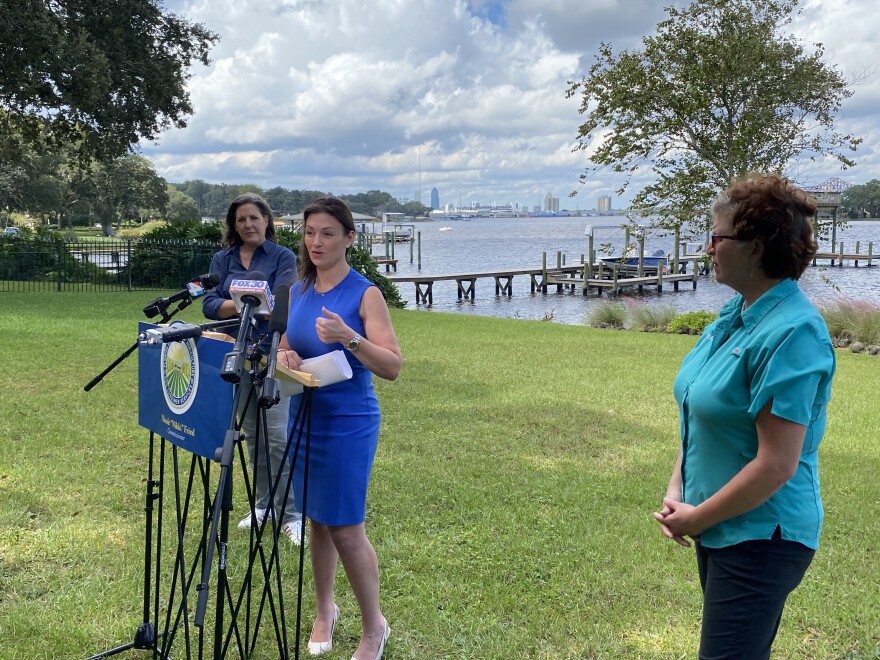Florida Agriculture Commissioner Nikki Fried made a stop in Jacksonville on Tuesday to promote a crackdown on businesses that foul the water and contribute to algae outbreaks like the one troubling the St. Johns River.
In press conference at a private residence along the river, Fried and two representatives from St. Johns Riverkeeper touted her Clean Water Initiative as a way to prevent or mitigate future algae surges.
Samples taken last month from the St. Johns River by St. Johns Riverkeeper found toxic blue-green algae levels up to 300 times higher than the recreational safe limit.
St. Johns Riverkeeper, a private nonprofit that investigates water pollution and acts as a watchdog on local environmental policy, disputed the testing procedure used by the Florida Department of Environmental Protection.
"We actually sample at the surface. That's where you see the green scum, and that's where people and pets are at most risk," said Lisa Rinaman, St. Johns Riverkeeper (the title for the organization's lead advocate). "The [Florida Department of Environmental Protection], they actually go 0.3 meters down, so about a foot underneath the surface. And we believe that doesn't give a true picture of what the health risks are."
Fried says her initiative would enforce best practices in the agriculture industry, mandate in-person inspections of agricultural businesses and give the environmental protection department more oversight over businesses that don't comply.
"For the first time ever, we will be taking action against those refusing to comply with state law to ensure that best management practices are being properly implemented," she said.
Fried, a Democratic candidate for governor, also used the occasion to boost her new campaign to reduce Florida's use of polystyrene, a plastic used in food packaging, typically as Styrofoam.
"Just a few weeks ago, we started the rulemaking process to phase out the use of polystyrene food packaging at or over 40,000 of our grocery stores, markets, convenience stores and other businesses that we regulate."
According to Fried, almost a third of Florida's landfill space is taken up by plastic foam. Her department will start asking businesses to report how much polystyrene they use and sell each year as part of a process to gradually phase out its usage within 10 years.


